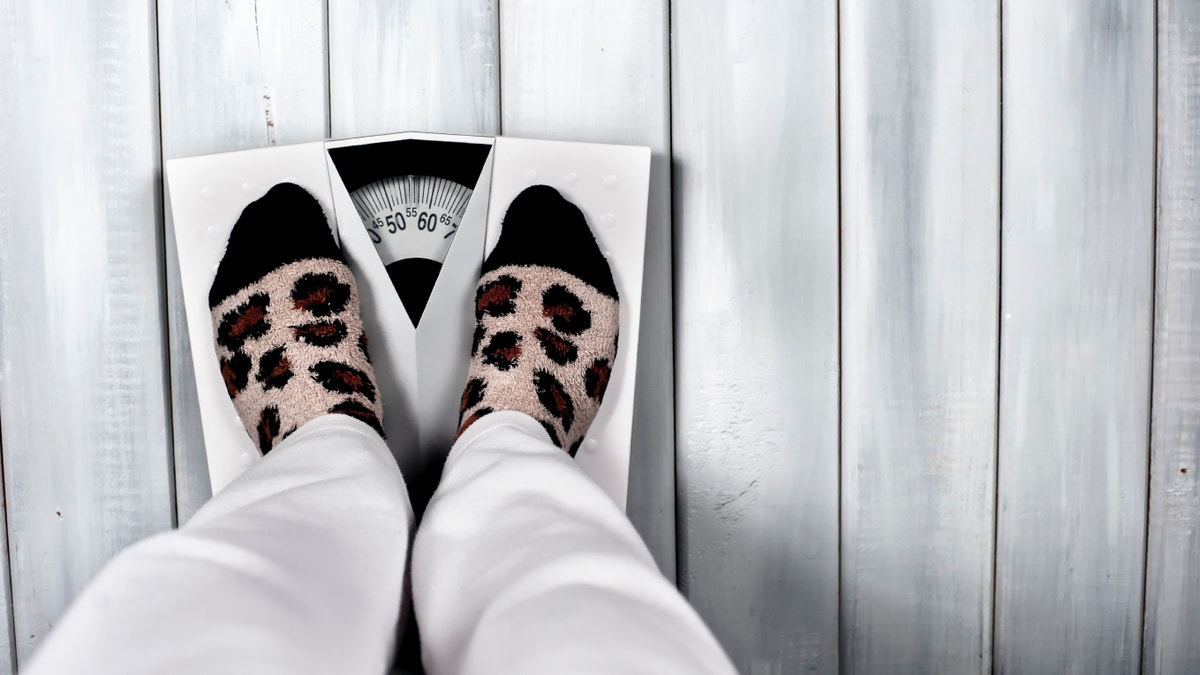
Woman on scale in casual clothes (iStock)
Summer is around the corner, and some of us still want to lose those last few pounds of “winter weight.” Despite calorie restricted dieting and increased physical activity, the pounds don’t always come off easily. Instead of giving up in despair, consider the following reasons why you may not be seeing results.
Overcompensating with exercise
Dripping with sweat, you may feel a small sense of victory as you step off of the treadmill. So now that you’ve burned 450 calories, you can at least have a bag of chips which is only 130 calories right? Wrong. The body doesn’t work tit for tat, and calories burned doesn’t translate to calories eaten exactly. Nutritious foods can be used as fuel for the body more efficiently than junk foods lacking nutrients, which will be stored as fat. Post workout lean proteins and wholesome carbohydrates will be used for muscle repair and recovery while your metabolism is still revving from your workout.
Eating too much healthy food
Healthy calories are still calories. It’s counterproductive to replace your ice cream sundae with a cup of high calorie “healthy” trail mix. In order to lose weight, there must be a calorie deficit. Popular “diet foods” such as protein bars used to replace less healthy foods can be helpful aids for weight loss, but they should not be eaten in excess. Take note, protein bars that have close to 200 calories and over 10g of protein are a complete meal and should not be eaten in addition to a sit-down meal.
Not drinking enough water
Water plays a role in food metabolism and in your body’s ability to burn calories and use them for energy. Water is also useful in weight loss because it helps you feel full. Drinking two cups of water before meals, combined with a calorie-restricted diet, has been proven to promote weight loss. And often thirst is confused with hunger so before you reach for a snack, try having a glass of water. You can change things up by adding in some fresh fruits for natural sweetness.
Stress
In addition to increased cravings and lack of self- control, stress also comes along with increased stress hormone levels, such as cortisone. With increased cortisone levels comes increased fat retention and insulin resistance. Insulin resistance means your body can’t process glucose obtained from carbohydrates properly and they are likely shuttled off to fat storage more easily. Stress can take a toll on your health status overall and should be reduced as much as possible. Physical activity is a great way to let off some steam, increase your heart health and burn fat.
You go by your scale
You can actually be losing weight but not see the number go down on your bathroom scale. How so? Muscle weighs more than fat and if you’ve picked up a physical activity regime, you will be losing fat and gaining muscle. A better indicator of your weight loss is how your clothes are fitting. If your pants are getting a little loser…if you can zip up that dress you previously couldn’t…These are the things you want to focus on to keep you motivated in your weight loss journey.
